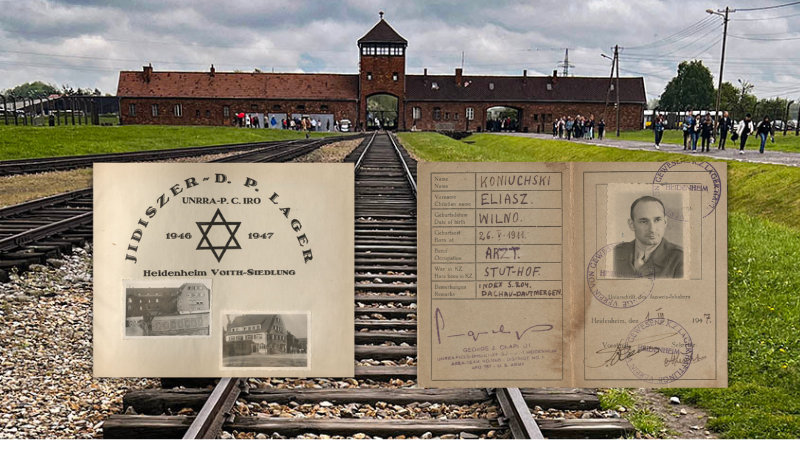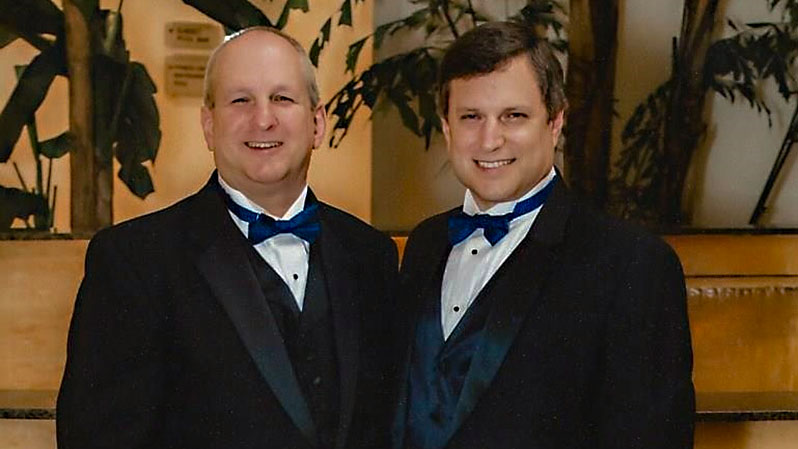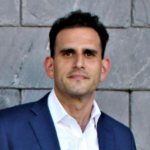
Some of the WWII artifacts donated to the U.S. Holocaust Museum. {courtesy}
A Parkland man and his brother recently donated their father’s artifact collection to the United States Holocaust Memorial Museum, sharing items that chronicle the Holocaust survivor’s experience as a Jewish doctor forced to treat Nazi soldiers during World War II.
The artifacts donated by Allen Konis, 61, of Parkland, and Leonard Konis, 62, of Plantation, to the Washington, D.C.-based Holocaust museum shed new light on the inner workings of a displaced persons camp where their father, Dr. Elliott Konis, treated war refugees, as well as his testimony at a 1965 trial of a Nazi war criminal.
“His survival was due to his profession and by luck,” said Allen Konis, a longtime resident of Parkland who practices dentistry in Boca Raton. “He described many German soldiers as conscripts not necessarily in agreement with Nazi doctrine, but many had to go along with the war effort or face retribution against their families. Jewish doctors were not allowed to be paid, but many soldiers found a way to sneak gold coins to him to show their appreciation.”
Dr. Eliasz Konichski—later Dr. Elliott Konis—was born in Vilna, Poland (now known as Vilnius, the capital of Lithuania), in 1911 and graduated from medical school in 1939, shortly before the German army invaded Poland.
Under the secret German-Soviet Non-Aggression Treaty of August 1939, Poland was divided between Germany and the Soviet Union, with Vilna coming under Soviet occupation.
When Germany later invaded Soviet territories and occupied the area in 1941, Nazi officials forced Dr. Konis and his family into the Vilna ghetto. Because of his profession, Dr. Konis was tasked with treating German soldiers injured in battle.
He was later sent to the Natzweiler-Struthof concentration camp and spent time at multiple concentration camps before his liberation at Dachau in 1945.
After liberation, Konis was employed by the United Nations Relief and Rehabilitation Administration at the Heidenheim Displaced Persons Camp, where he provided health care to more than 2,000 fellow survivors and displaced persons. Konis immigrated to New York City in 1949 and opened his medical practice.
In 1965, Konis returned to Germany to testify against Nazi war criminals for their roles in committing atrocities at the concentration camps. His testimony helped convict Helmut Schnabel, a Nazi commandant of the Vaivara concentration camp in northern Estonia. Schnabel was sentenced to life in prison for his crimes.

Brothers Leonard and Allen Konis. {courtesy}
Konis, like many Holocaust survivors, is now deceased. As the last of the Nazis’ victims pass away, items like the ones donated by the Konis’ are crucial to ensuring the personal stories and experiences of survivors live on.
The collection of Dr. Konis’ artifacts includes:
– A photo album, “UNRRA-IRO Lager in Heidenheim,” capturing administrators and staff in the displaced persons camp as well as residents, activities, and programs from 1946 to 1947.
– An identity card issued to Dr. Konis by the Association of Jewish former concentration camp prisoners.
– Transcripts, documents, and correspondence regarding Dr. Konis’ participation in Schnabel’s war crimes trial.
– Documents and correspondence regarding Dr. Konis’ medical history as a result of his experiences in multiple concentration camps.
– Poems originally written during the Holocaust and retyped after the war.
“Even after everything he experienced during the war, Dr. Konis remained committed to the care of his fellow survivors, overseeing the medical care of thousands of individuals in the Heidenheim/Württemberg Jewish Displaced Persons camp,” said Kyra Schuster, lead acquisitions curator at the United States Holocaust Memorial Museum.
“While the Museum has some personal photos from the Heidenheim Displaced Persons camp in its collection, Dr. Konis’ album depicts the structure and governance of the camp, and the wide number of activities, committees, and programs within the camp were not previously documented in our holdings.”
The museum’s collection documents the fate of Holocaust victims, survivors, rescuers, liberators, and others during the Nazi-led genocide that killed 6 million Jews during World War II.
Send your news to Parkland’s #1 Award-Winning News Source, Parkland Talk. Don’t Miss Tamarac Talk, Coral Springs Talk, Coconut Creek Talk, and Margate Talk.
Author Profile

Related
 NewsAugust 20, 2025Magazine Ranks Marjory Stoneman Douglas High School 6th Best in Broward
NewsAugust 20, 2025Magazine Ranks Marjory Stoneman Douglas High School 6th Best in Broward NewsAugust 14, 2025Lawmakers Representing Parkland File for 2026 Re-Election Race
NewsAugust 14, 2025Lawmakers Representing Parkland File for 2026 Re-Election Race NewsAugust 1, 2025Parkland Man Dies in North Carolina Hiking Accident
NewsAugust 1, 2025Parkland Man Dies in North Carolina Hiking Accident NewsJuly 23, 2025Parkland Woman Identified Among Victims in Deadly River Tragedy
NewsJuly 23, 2025Parkland Woman Identified Among Victims in Deadly River Tragedy












